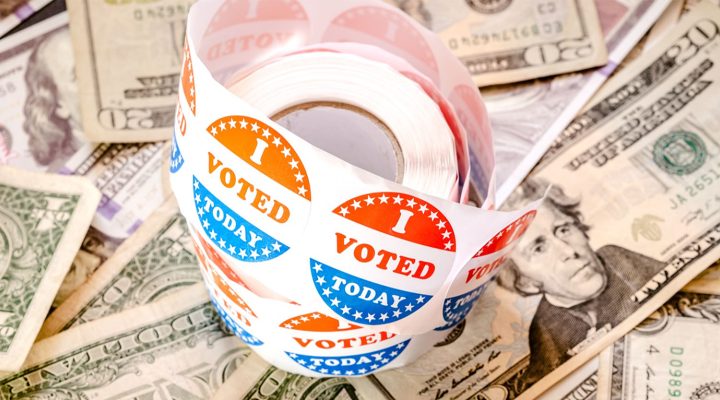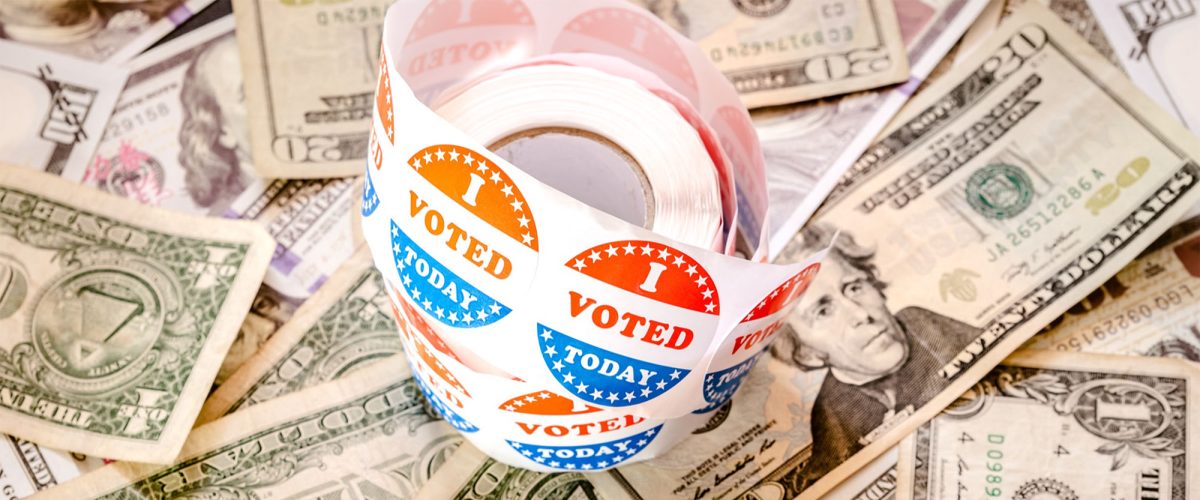There’s a long tradition in American politics of voting based on economic interests. We shouldn’t be surprised that gas prices and food prices have a direct bearing on who people vote for or against.
But there are good reasons not to vote based solely on the economy. Sometimes what is best for the economy is the worst possible choice for morality and citizenship. When we worship the god of money over all other community causes, we are sure to leave ourselves and our neighbors in need.

Mark Wingfield
James Carville famously drove Bill Clinton to the presidency with the mantra, “It’s the economy, stupid!” And indeed, Clinton unseated one-term president George H.W. Bush, who made the mistake of declaring, “Read my lips: No new taxes” and then had to sign a bill that increased taxes.
American voters exact revenge on office holders and candidates any time they believe their pocketbooks or retirement funds are threatened.
It makes sense, but it’s still often wrong. Remember the words of the Apostle Paul: “The love of money is the root of all sorts of evil.”
Indeed, it is the love of money that drives American politics and elections. Specifically, it is our love of money for ourselves. It is never about working to ensure someone else has enough money — even when politicians tell you things like “trickle-down economics” will work. It hasn’t and doesn’t. Ever.
Now, I’m not saying you should go find the candidate with the worst views on the economy and vote for them; not at all. The economy is important, and inflation affects the poor more immediately than the rich. I’m arguing that the economy cannot and should not be our first motivation in selecting leaders.
We must follow a higher calling in leadership, and it begins with honesty.
“What if we set out first to elect leaders who tell the truth?”
What if we set out first to elect leaders who tell the truth? What if we stopped believing the lies candidates tell us just to get elected? Politicians lie to voters because it works.
How would your voting change if honesty were indeed the best policy? And how would candidate behavior change if we voted for honesty?
“All politicians lie,” you might counter. Even if that’s true — and I’m not sure it is — not all politicians lie to the same extent. Some are world-class liars, and they should be the first to go. Some are blatant liars — with the truth staring them straight in the face — and they should be the second to go.
Do you know how many candidates running for election in the midterms next month refuse to say the 2020 presidential election was fair? Hundreds. And many of them will win their races while spouting this verifiable lie — because American voters do not value truth-telling.
The second thing more important than the economy as a guide for voting is community. Does the candidate value the good of the whole more than the wealth of the few?
Again, this is as biblical a concept as you’ll find. “Seek the welfare of the city,” Scripture advises. “Love your neighbor as yourself,” Jesus said. I could go on.
Nowhere in Scripture, and nowhere in orthodox Christian theology, are we taught to value our own interests above everyone else. That kind of teaching is heresy, yet it is rampant in our churches and in our minds. And our voter guides are geared to answer the wrong question: What will this candidate do for me?
A third ideal more important than the economy in voting is fairness. “The Lord detests uneven weights,” Scripture teaches.
Our duty as Christian citizens is to give everyone a fair shake, to create level playing fields, to disable favoritism. Everything about Judaism and Christianity demands fairness over favoritism. Yet too often we vote for candidates based largely on what they promise to do for us and our tribe, not the community as a whole.
Bringing home the pork is an age-old tradition in Congress. Officials get re-elected when they bring in funding for bridges and ballparks and military bases.
“We cannot work for the kingdom of God to come on earth as it is in heaven when we are motivated primarily by self-serving economics.”
Maybe you’ve noticed by now the three things I’ve outlined as good motivators for voting demand a different kind of economy. Just as Jesus modeled for us a different kind of economy and a different kind of kingdom. We cannot work for the kingdom of God to come on earth as it is in heaven when we are motivated primarily by self-serving economics.
It is ironic that those who most loudly profess their Christian faith most often fall into the trap of voting for economic self-interest. But they are not the only ones. Many theological liberals are equally driven by financial self-protection.
Voting based on the economy demonstrates a lack of faith in God’s provision. It is a political view driven by a theology of scarcity. When we go into the voting booth believing the most important thing is protecting our financial interests, we deny the faithfulness of God to provide for us all we need.
Mark Wingfield serves as executive director and publisher of Baptist News Global.
Related articles:
A vote is ‘a kind of prayer,’ Warnock says in first Senate speech
Vote “Jesus 2020”? | Opinion by Zachary Helton


